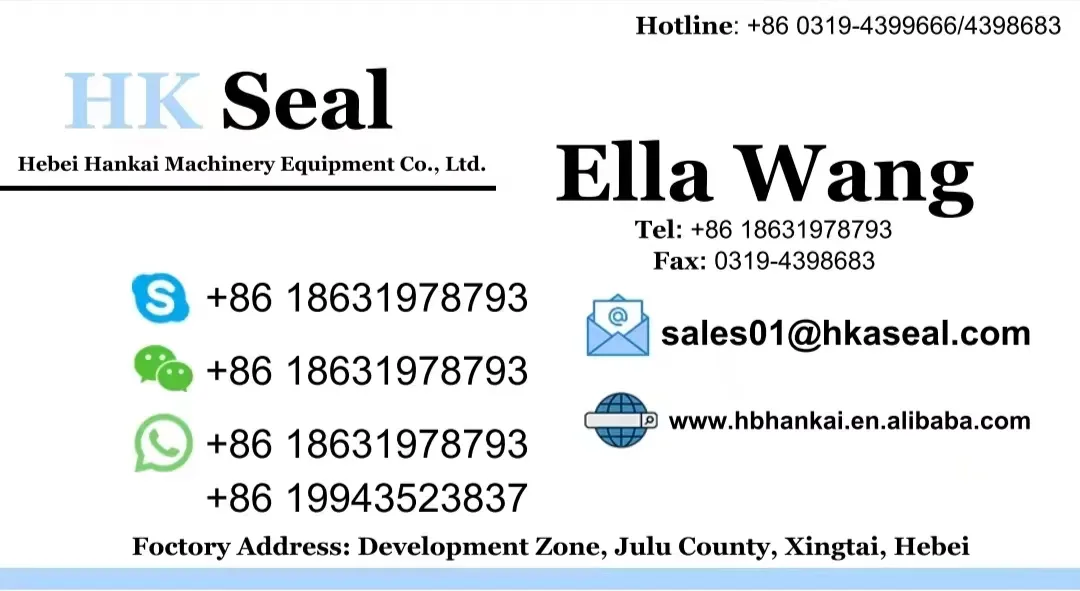ನವೆಂ . 22, 2024 12:44 Back to list
hub grease seal
Understanding Hub Grease Seals Importance, Types, and Maintenance
In the world of mechanical components, hub grease seals play a pivotal role in ensuring the longevity and efficiency of various machinery and vehicles. These seals, often overlooked, are crucial for maintaining the integrity of bearings and preventing contamination. In this article, we delve into the importance of hub grease seals, the different types available, and best maintenance practices to enhance their performance.
What is a Hub Grease Seal?
A hub grease seal is a type of sealing device typically situated in the hub of an axle, wheel, or bearing assembly. Its primary purpose is to keep lubrication contained within the assembly while preventing dirt, dust, and moisture from entering. By doing so, it helps maintain the lubrication's effectiveness and prevents wear and tear on the internal components.
Modern vehicles and machinery operate under rigorous conditions, which makes the role of grease seals even more critical. They help maintain optimal operating temperatures and reduce friction by ensuring that the grease remains in place and is not fouled by external contaminants.
Importance of Hub Grease Seals
1. Contamination Prevention The presence of dirt and moisture can lead to significant damage in mechanical systems. Hub grease seals act as barriers, preventing these contaminants from entering where they could compromise functionality.
2. Lubrication Retention Proper lubrication is essential for the smooth operation of bearings and other moving parts. A well-functioning grease seal ensures that the grease does not leak out, allowing components to operate efficiently.
3. Extended Equipment Life By keeping the internal mechanisms protected from contaminants and ensuring that they are properly lubricated, grease seals contribute to the overall lifespan of the machinery or vehicle.
Types of Hub Grease Seals
There are several types of grease seals used in different applications. Here are the most common
hub grease seal

1. Rubber Grease Seals Often used in automotive applications, rubber seals are flexible and provide a good barrier against contaminants. They can accommodate slight variations in the size of the surfaces they seal.
2. Metal Shell Seals These seals come with a metallic outer shell and are known for their durability. They are commonly used in heavy machinery where exposure to harsh conditions is expected.
3. Lip Seals Equipped with a rubber lip that provides a tight fit against the shaft or housing, lip seals are designed to retain grease while resisting high-pressure environments.
4. Composite Seals Made from a combination of materials, composite seals offer enhanced performance characteristics, such as resistance to higher temperatures and pressures.
Maintenance Tips for Hub Grease Seals
To ensure the longevity and effectiveness of hub grease seals, regular maintenance is essential
1. Inspection Regularly inspect the seals for any signs of wear, cracking, or damage. Early detection can prevent more significant issues down the line.
2. Replacement If a grease seal is worn or damaged, it should be replaced immediately. Continuing to use a compromised seal can lead to contamination and failure of internal components.
3. Use Quality Grease Ensure that the grease applied is appropriate for the specific application and meets manufacturer specifications. Quality grease helps to maintain the effectiveness of the seal.
4. Proper Installation When installing new grease seals, ensure they are fitted correctly to avoid leaks. Follow manufacturer guidelines and best practices during installation.
5. Environmental Considerations Keep the area around the hubs clean and free of debris to minimize the risk of dirt and moisture entering the seals.
In conclusion, hub grease seals are essential components in machinery and automotive applications. Their function in preventing contamination, retaining lubrication, and extending the lifespan of equipment cannot be overstated. Understanding the types of grease seals available and following maintenance best practices can lead to improved performance and reduced costs over time. As technology advances, the development of more resilient and efficient grease seals will continue to enhance the reliability of our machinery and vehicles.
-
TCN Oil Seal Metal Ring Reinforcement for Heavy Machinery
NewsJul.25,2025
-
Rotary Lip Seal Spring-Loaded Design for High-Speed Applications
NewsJul.25,2025
-
Hydraulic Cylinder Seals Polyurethane Material for High-Impact Jobs
NewsJul.25,2025
-
High Pressure Oil Seal Polyurethane Coating Wear Resistance
NewsJul.25,2025
-
Dust Proof Seal Double Lip Design for Construction Equipment
NewsJul.25,2025
-
Hub Seal Polyurethane Wear Resistance in Agricultural Vehicles
NewsJul.25,2025
-
The Trans-formative Journey of Wheel Hub Oil Seals
NewsJun.06,2025
Products categories
















